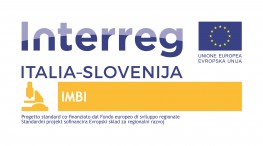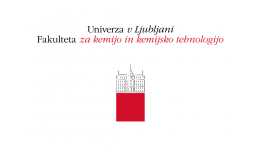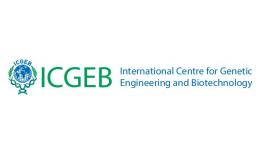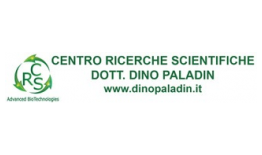Strengthening research, technological development and innovation

Promoting innovation capacities for a more competitive area
The general project objective is the creation of a strong cooperation between project partners with the aim of creating a rapid, reliable and specific diagnostic test using bacteriophages for the detection and identification of the bacteria responsible of the prosthetic joint infection. This will allow the identification of the most effective therapeutic approach and the consequent use of a specific antibiotic treatment.
Bacterial infection of the online prosthesis (PJI) is one of the most serious complications of modern arthroplasty and requires removal of the prosthesis and long-term antibiotic treatment. Since we do not have a fast and reliable diagnostic method for the diagnosis PJI, the patient either does not receive antibiotic therapy or it is only non-specific. The aim of the project is to establish a close cooperation between the PP with the goal of developing a fast, reliable and specific diagnostic test based on bacteriophages for the detection and identification of bacteria that cause PJI. Fast and reliable diagnostics will enable faster specific treatment with antibiotics.
An innovative bacteriophage-based diagnostic test was developed to detect infections of joint prostheses with Staphylococcus bacteria. A network of PPs was established, which exchange knowledge with each other and spread knowledge about bacteriophages to other stakeholders.
An important achievement of the project is the formation of a consortium of experts of various competences and the unification of their expertise in various fields. The project connected top research centers, hospitals and biotechnology companies, at the local, European and global level. The project provided additional knowledge about phages, which will contribute to their future use in medicine.
Research results can be used in various fields of medicine and in other medical institutions, especially in orthopedic clinics and trauma centers. Fast and effective diagnostics of bacteria with the help of bacteriophages will also be possible to detect other bacterial infections, not only PJI, which will reduce the use of antibiotics. The acquired knowledge about phages can be used for therapeutic purposes. The established bacteriophage library will continue to be built with the aim of becoming a reference point and Center of Excellence in this part of Europe for the research and use of bacteriophages in medicine.
The main project result is the greater cooperation between clinics, research centres and SMEs operating in bacteriological diagnostics through bacteriophages by the creation of a cross-border public / private network for development and promotion of new diagnostic tools for the detection and identification of bacteria in Prosthetic Joint Infection (PJI).
A consortium of partners has been established to cooperate and spread knowledge about bacteriophages.
The developed diagnostic test based on bacteriophages was revised on 100 sonicates
Many bacteriophages were exchanged and procured. We characterized the selected ones, amplified them, prepared DNA cassettes and GFP, designed a method for the detection of bacteria, optimized the testing conditions and tested the diagnostic test model on 278 sonicates of patients from OBV
A bacteriophage library has been established
Bacteriophages were selected to prepare a cocktail for the detection of different bacterial species.
3 different detection methods were tested for the detection of rapidly multiplying bacteriophages
Bacterial infection is not only a problem in orthopaedic surgery, but also a cross-cutting health care problem. The innovative diagnostic approaches that has been developed by the project will therefore also target other health institutions. The consortium of partners will represent the basis for further cooperation within the Centre of excellence aimed at research on bacteriophages and their use in clinical practice.
Lead Partner

Project partner 1

Project partner 2

Project partner 3

Project partner 4

| IMBI POSTER IMBI POSTER.pdf ( 356 bytes, published on 18 July, 2023 - 11:13 ) | |
| Annuncement upon completion of the project IMBI Objava ob Zaključku projekta.pdf ( 2 bytes, published on 18 July, 2023 - 11:13 ) | |
| IMBI Publication in the media IMBI 1. objava v Primorskih novicah.pdf ( 1 byte, published on 18 July, 2023 - 11:13 ) | |
| IMBI Publication in the media IMBI 2. objava v Primorskih novicah.pdf ( 6 bytes, published on 18 July, 2023 - 11:13 ) | |
| IMBNI EFORT Abstract IMBI EFORT Abstrakt.pdf ( 160 bytes, published on 18 July, 2023 - 11:13 ) | |
| IMBI EFORT Poster IMBI EFORT Poster.pdf ( 658 bytes, published on 18 July, 2023 - 11:13 ) | |
| IMBI Publication in the media IMBI How can good viruses affect our health.pdf ( 2 bytes, published on 18 July, 2023 - 11:13 ) | |
| IMBI Newsletter IMBI Newsletter.jpg ( 1 byte, published on 18 July, 2023 - 11:13 ) |
KEY PROJECT OBJECTIVES
Cooperation: The general project objective - the creation of a strong cooperation between project partners with the aim of creating a rapid, reliable and specific diagnostic test using bacteriophages for the detection and identification of the bacteria responsible of the prosthetic joint infection. This will allow the identification of the most effective therapeutic approach and the consequent use of a specific antibiotic treatment. A consortium of partners has been established to cooperate and spread knowledge about bacteriophages.
Test validation: The development and validation of an innovative diagnostic test, based on bacteriophages for the diagnosis of infections of joint prostheses and the identification of the bacteria responsible for the infection - a diagnostic test was developed and a bacteriophage detection test successfully performed using synthesized DNA barcodes. The study included clinical data for more than 100 OBV patients
Network di excellence: The creation of a network of excellence in the cross-border area for the research and use of bacteriophages in medicine and more widely in the natural sciences. New bacteriophages were obtained and stored in the established bacteriophage library, which will continue to be built even after the completion of the project with the aim of becoming a reference point and Center of Excellence in this part of Europe for the research and use of bacteriophages.